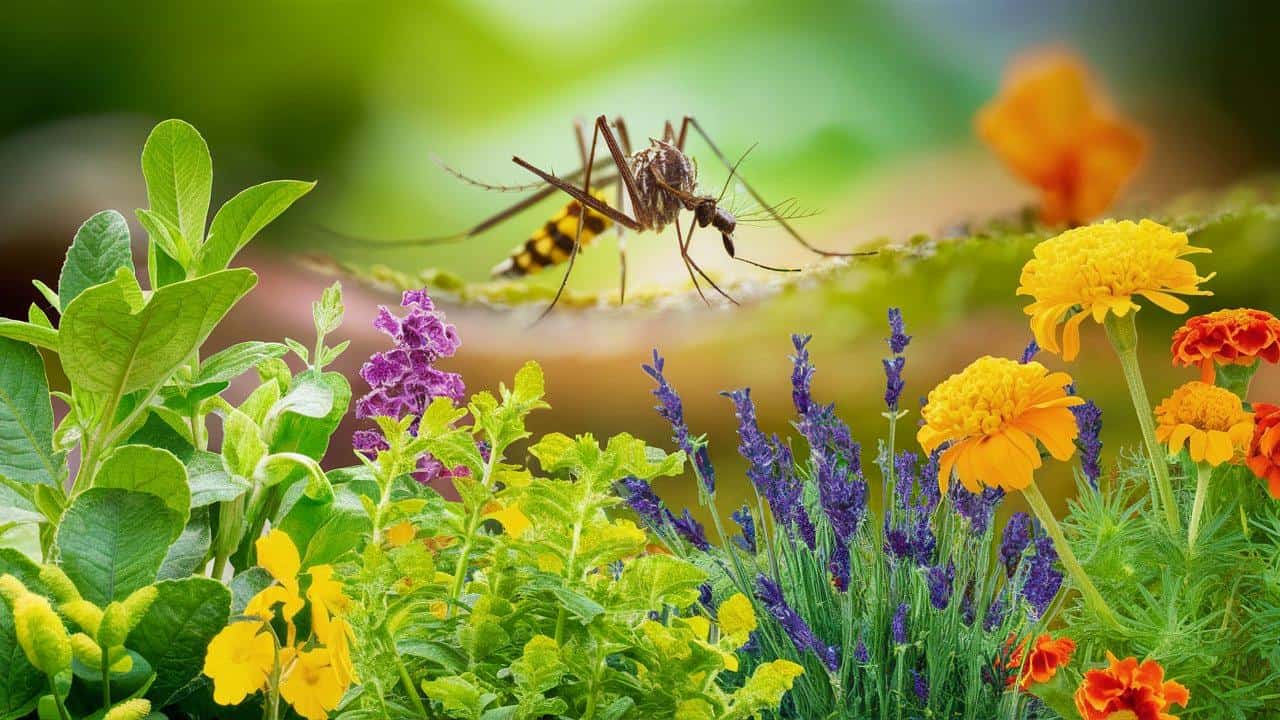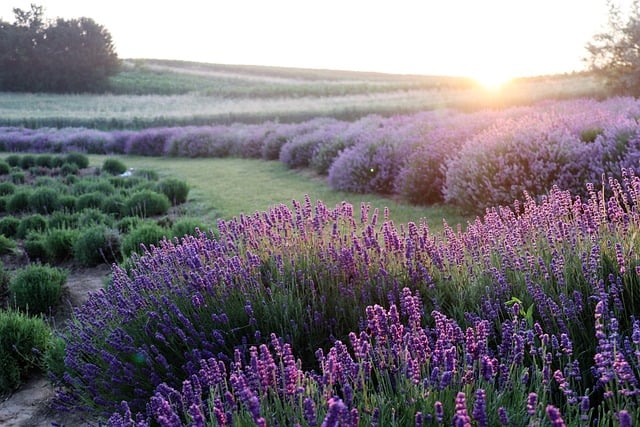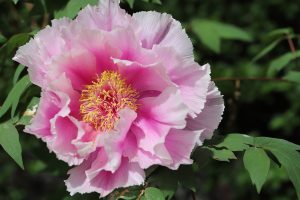Mosquitoes can be a real nuisance, especially during the warmer months. These pesky insects not only leave itchy bites, but they can also transmit dangerous diseases like malaria, Zika virus, and West Nile virus. While chemical insect repellents can be effective, many people prefer to use more natural solutions. Luckily, there are several plants that can help keep mosquitoes at bay.
Lavender
Lavender is not only a beautiful and fragrant addition to any garden, but it’s also a powerful natural mosquito repellent. The strong aroma of lavender stems from the essential oils produced by the plant, which mosquitoes find unpleasant and tend to avoid. Planting lavender around seating areas, pathways, or near entryways can help create a mosquito-free zone. You can also crush the leaves or flowers and rub the oils onto your skin for a natural insect repellent. Lavender’s calming properties make it a great choice for creating a relaxing outdoor oasis.
Mint
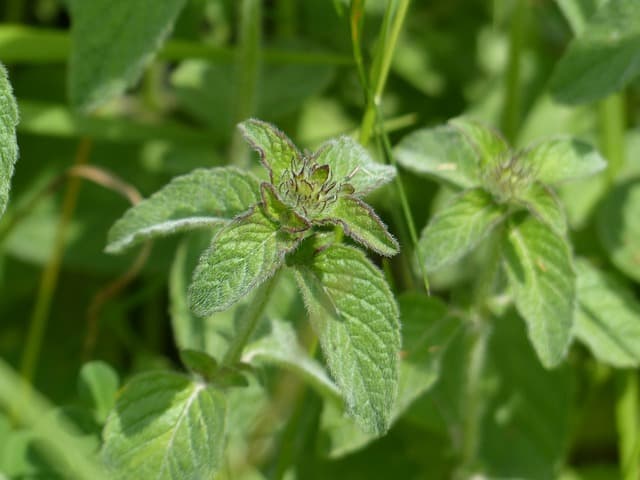
Like lavender, mint is another aromatic plant that mosquitoes find unappealing. Mint contains compounds called monoterpenes, which are known to be effective insect repellents. There are many different varieties of mint, including peppermint, spearmint, and lemon mint, all of which can help keep mosquitoes at bay. Mint is an incredibly versatile plant – you can plant it in gardens, containers, or even grow it indoors. Just be mindful that mint can be quite invasive, so it’s best to contain it or plant it in an area where it won’t overtake other plants.
Rosemary
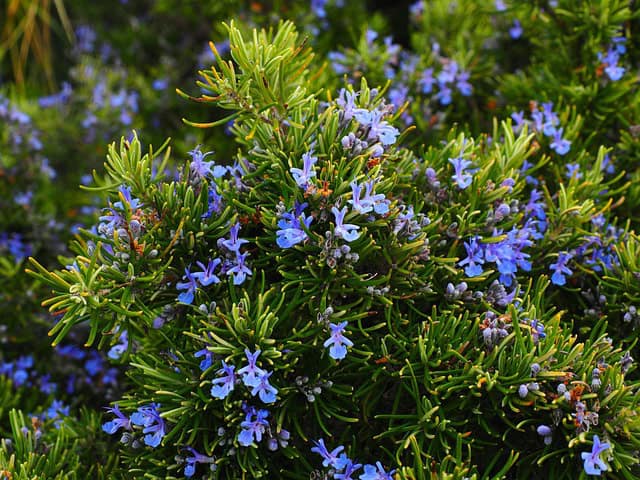
Rosemary is a fragrant, evergreen herb that not only enhances the flavor of many dishes, but it’s also a natural mosquito repellent. The strong, woody scent of rosemary comes from the essential oils in the plant, which mosquitoes find unpleasant. Planting rosemary around seating areas, walkways, or near entryways can help create a mosquito-free zone. You can also crush the leaves and rub the oils onto your skin for a natural insect repellent. Rosemary is a hardy, drought-tolerant plant that thrives in sunny, well-drained areas, making it a great choice for gardens in warmer climates.
Bee Balm
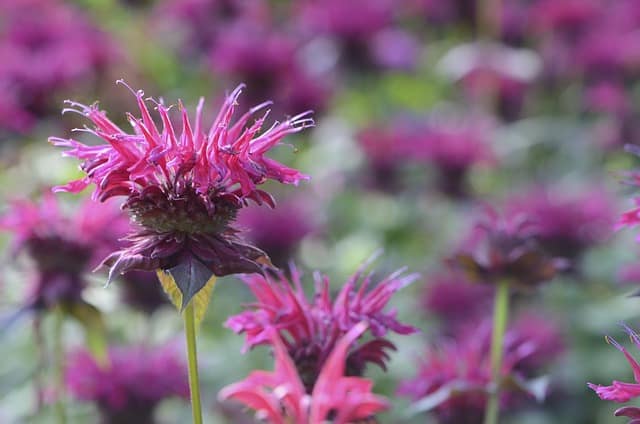
Bee balm, also known as Monarda, is a vibrant, flowering plant that not only attracts pollinators like bees and butterflies, but it can also help repel mosquitoes. The plant’s strong, minty aroma comes from the essential oils it produces, which mosquitoes find unpleasant. Bee balm comes in a variety of colors, including red, pink, purple, and white, making it a beautiful addition to any garden. Plant bee balm in full sun and well-drained soil for best results. You can also crush the leaves and rub the oils onto your skin for a natural mosquito repellent..
Allium
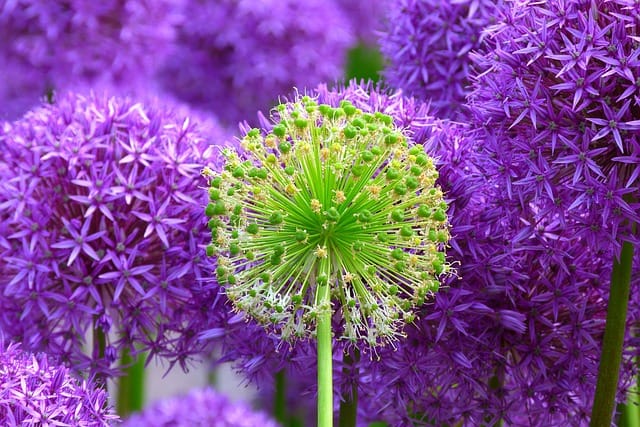
Alliums, which include onions, garlic, chives, and leeks, are not only flavorful culinary herbs, but they can also act as natural mosquito repellents. The strong, pungent aroma of alliums comes from the sulfur compounds they produce, which mosquitoes find unpleasant. Planting alliums around seating areas, pathways, or near entryways can create a protective barrier against mosquitoes. You can also crush the leaves or flowers and rub the oils onto your skin for a natural insect repellent. Alliums are easy to grow and come in a variety of sizes and colors, making them a versatile addition to any garden.
Catnip
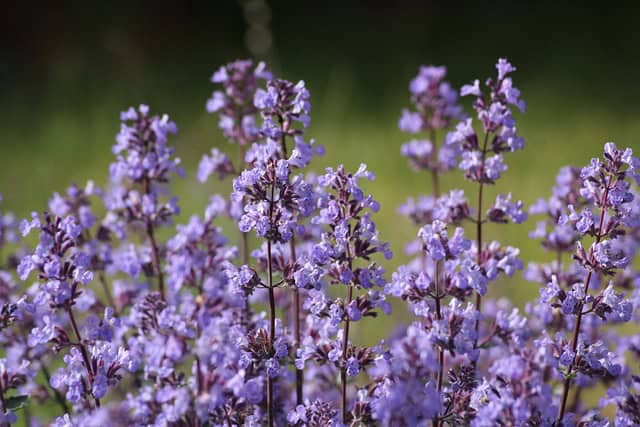
Catnip, or Nepeta, is a member of the mint family and is well-known for its ability to attract and entertain cats. But did you know that catnip can also be an effective mosquito repellent? The plant produces nepetalactone, a compound that not only drives cats wild but also acts as a natural insect repellent. Planting catnip around your outdoor living spaces can help create a mosquito-free zone. You can also crush the leaves and rub the oils onto your skin for a natural mosquito repellent. Catnip is a hardy, drought-tolerant plant that thrives in full sun, making it a great choice for gardens in warmer climates.
Lemongrass
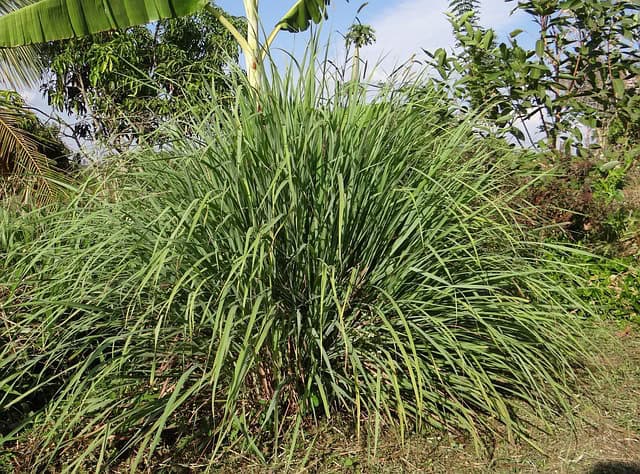
Lemongrass is a tall, fragrant grass that is commonly used in Asian cuisines, but it also has a surprising ability to repel mosquitoes. The strong, citrusy aroma of lemongrass comes from the essential oils it produces, which mosquitoes find unpleasant. Planting lemongrass around seating areas, pathways, or near entryways can help create a mosquito-free zone. You can also crush the leaves and rub the oils onto your skin for a natural insect repellent. Lemongrass is a tropical plant that thrives in warm, humid conditions, so it’s best suited for gardens in warmer climates.
Marigold
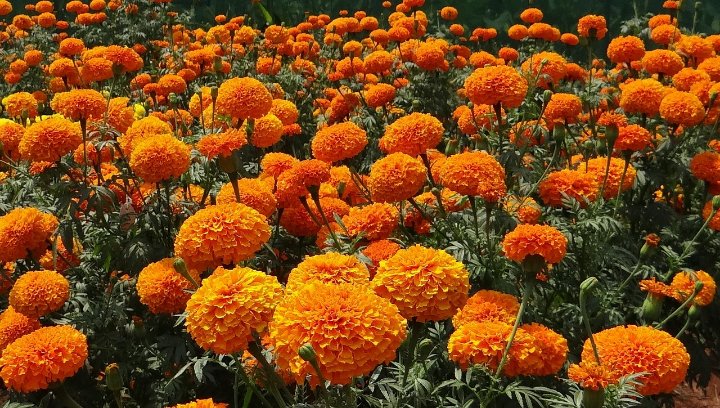
Marigolds are not only vibrant, cheerful flowers, but they can also act as natural mosquito repellents. The strong, pungent aroma of marigolds comes from the thiophene compounds they produce, which mosquitoes find unpleasant. Planting marigolds around your garden, near seating areas, or along pathways can help create a mosquito-free zone. You can also crush the leaves and rub the oils onto your skin for a natural insect repellent. Marigolds are easy to grow, come in a variety of colors, and thrive in full sun, making them a great choice for gardens in warmer climates.
Lantana
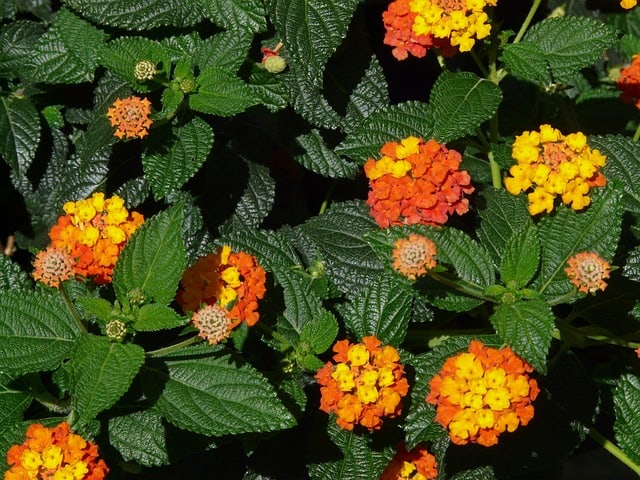
Lantana is a vibrant, flowering plant that comes in a variety of colors, including yellow, orange, red, and purple. But beyond its visual appeal, lantana is also known for its ability to repel mosquitoes. The plant’s strong, pungent aroma is derived from the essential oils it produces, which mosquitoes find unpleasant. Planting lantana around seating areas, pathways, or near entryways can create a protective barrier against these pesky insects. You can also crush the leaves and rub the oils onto your skin for a natural mosquito repellent. Lantana is a drought-tolerant, heat-loving plant that thrives in full sun, making it an excellent choice for gardens in warmer climates.
Fennel
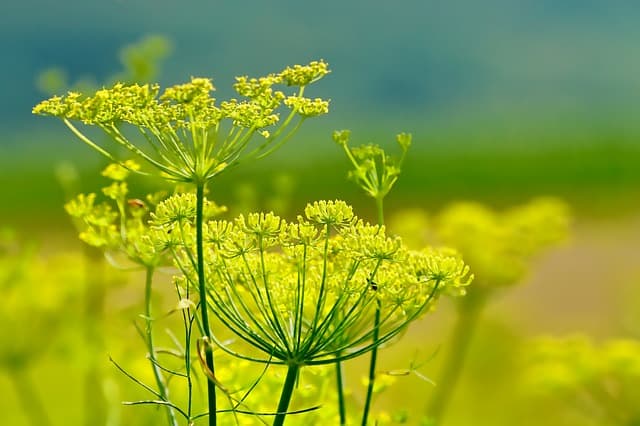
Fennel is a versatile herb that not only adds flavor to many dishes but also acts as a natural mosquito repellent. The strong, licorice-like aroma of fennel comes from the essential oils it produces, which mosquitoes find unpleasant. Planting fennel around your outdoor living spaces can help create a mosquito-free zone. You can also crush the leaves and rub the oils onto your skin for a natural insect repellent. Fennel is a hardy, easy-to-grow plant that thrives in full sun and well-drained soil, making it a great addition to any garden.
Eucalyptus
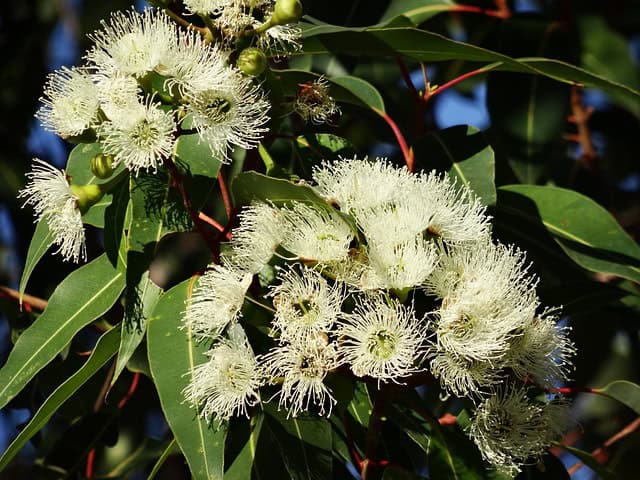
Eucalyptus is a fragrant, evergreen tree or shrub that is native to Australia, but it can also be grown in many other parts of the world. The strong, menthol-like aroma of eucalyptus comes from the essential oils it produces, which mosquitoes find unpleasant. Planting eucalyptus around your outdoor living spaces can help create a mosquito-free zone. You can also crush the leaves and rub the oils onto your skin for a natural insect repellent. Eucalyptus is a drought-tolerant, heat-loving plant that thrives in full sun, making it a great choice for gardens in warmer climates.
Basil
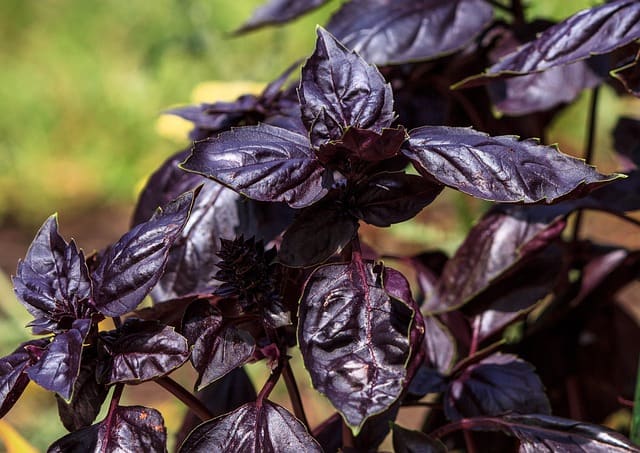
Basil is a popular culinary herb that not only adds flavor to many dishes but also acts as a natural mosquito repellent. The strong, pungent aroma of basil comes from the essential oils it produces, which mosquitoes find unpleasant. Planting basil around your outdoor living spaces, near seating areas, or along pathways can help create a mosquito-free zone. You can also crush the leaves and rub the oils onto your skin for a natural insect repellent. Basil is a warm-weather plant that thrives in full sun and well-drained soil, making it a great choice for gardens in warmer climates.
Thyme
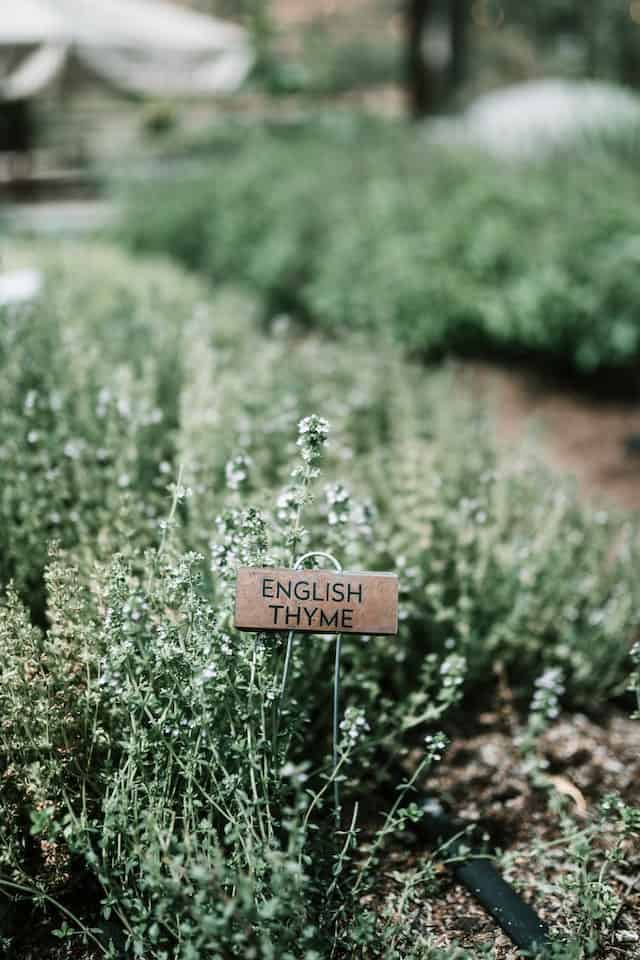
Thyme is a fragrant, low-growing herb that is a staple in many herb gardens and culinary dishes. But did you know that thyme can also act as a natural mosquito repellent? The strong, earthy aroma of thyme comes from the essential oils it produces, which mosquitoes find unpleasant. Planting thyme around seating areas, pathways, or near entryways can create a protective barrier against these pesky insects. You can also crush the leaves and rub the oils onto your skin for a natural mosquito repellent. Thyme is a hardy, drought-tolerant plant that thrives in full sun and well-drained soil, making it an excellent choice for gardens in warmer climates.
Scented Geranium
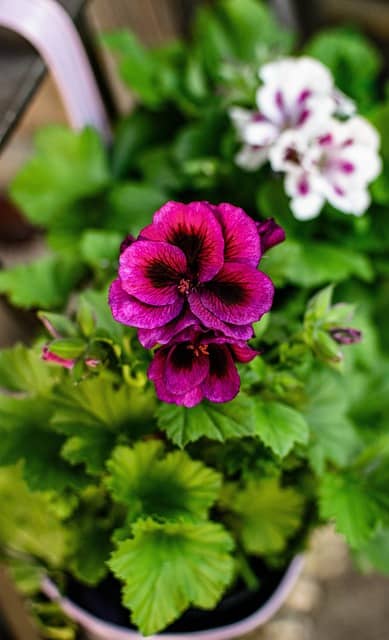
Scented geraniums, also known as aromatic geraniums, are a type of geranium that produce strong, fragrant leaves. These plants come in a variety of scents, including lemon, rose, and peppermint, all of which can help repel mosquitoes. The essential oils in scented geraniums are what give them their distinct aromas, and these same oils are what make them effective mosquito repellents. Planting scented geraniums around your outdoor living spaces can help create a mosquito-free zone. You can also crush the leaves and rub the oils onto your skin for a natural insect repellent. Scented geraniums are relatively easy to grow and thrive in full sun and well-drained soil.
Sage (Salvia officinalis)
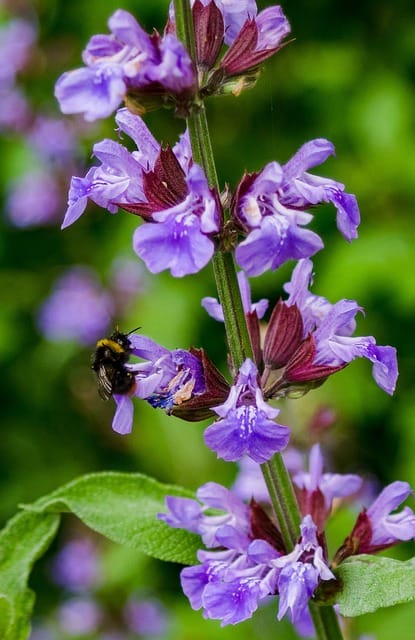
Sage, or Salvia officinalis, is a fragrant, woody herb that is commonly used in cooking, but it also has the ability to repel mosquitoes. The strong, earthy aroma of sage comes from the essential oils it produces, which mosquitoes find unpleasant. Planting sage around your outdoor living spaces can help create a mosquito-free zone. You can also crush the leaves and rub the oils onto your skin for a natural insect repellent. Sage is a hardy, drought-tolerant plant that thrives in full sun and well-drained soil, making it a great choice for gardens in warmer climates.
Garlic
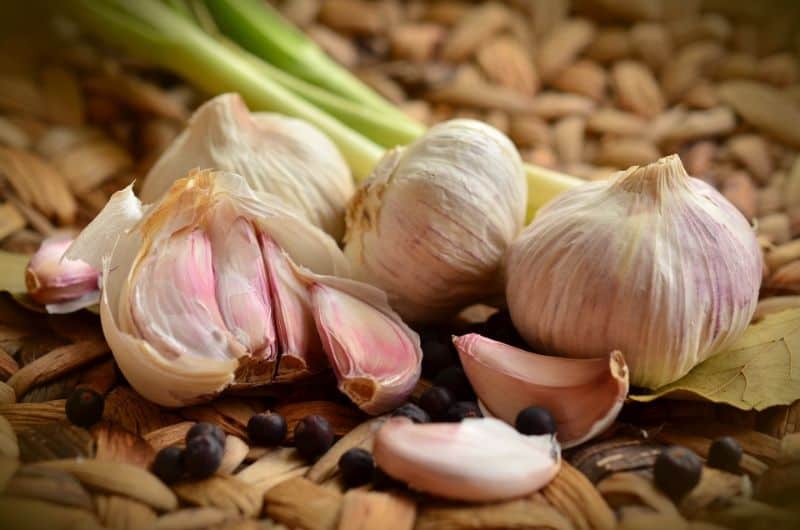
Garlic is not only a flavorful culinary ingredient, but it can also act as a natural mosquito repellent. The strong, pungent aroma of garlic comes from the sulfur compounds it produces, which mosquitoes find unpleasant. Planting garlic around your outdoor living spaces, near seating areas, or along pathways can help create a mosquito-free zone. You can also crush the cloves and rub the oils onto your skin for a natural insect repellent. Garlic is a relatively easy-to-grow plant that thrives in full sun and well-drained soil, making it a great choice for gardens in a variety of climates.


